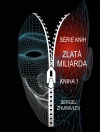Quintessentially fascinating, love intrigues and perplexes us, and drives much of what we do in life. As wary as we may be of its illusions and disappointments, many of us fall blindly into its traps and become ensnared time and again. Deliriously mad excitement turns to disenchantment, if not deadening repetition, and we wonder how we shall ever break out of this vicious cycle.
Can psychoanalysis – with ample assistance from philosophers, poets, novelists, and songwriters – give us a new perspective on the wellsprings and course of love? Can it help us fathom how and why we are often looking for love in all the wrong places, and are fundamentally confused about ‘what love really is’?
In this lively and wide-ranging exploration of love throughout the ages, Fink argues that it can. Taking within his compass a vast array of traditions – from Antiquity to the courtly love poets, Christian love, and Romanticism – and providing an in-depth examination of Freud and Lacan on love and libido, Fink unpacks Lacan’s paradoxical claim that ‘love is giving what you don’t have.’ He shows how the emptiness or lack we feel within ourselves gets covered over or entwined in love, and how it is possible and indeed vital to give something to another that we feel we ourselves don’t have.
This first-ever commentary on Lacan’s Seminar VIII, Transference, provides readers with a clear and systematic introduction to Lacan’s views on love. It will be of great value to students and scholars of psychology and of the humanities generally, and to analysts of all persuasions.
Cuprins
Preface vii
Introduction 1
The Symbolic
I. Freudian Preludes: Love Triangles 9
Obsessives in Love * Hysterics in Love
II. Freudian Conundrums: Love Is Incompatible with Desire 16
‘Where They Love They Do Not Desire’ * ‘Where They Desire They Do Not Love’ * On Women, Love, and Desire * Too Little * Too Much
III. Lacan’s Reading of Plato’s Symposium 33
Love Is Giving What You Don’t Have * Not Having and Not Knowing * Love as a Metaphor: The Signification of Love * The Miracle of Love * Love in the Analytic Context
The Imaginary
IV. Freudian Preludes: Narcissism 55
Narcissism and Love * Love for the Ego-Ideal
V. Lacan’s Imaginary Register 62
Animals in the Imaginary * Animals in Love * The Formative Role of Images in Human Beings * The Mirror Stage * The Image We Love More Than Ourselves: The Ideal Ego * The Myth of Narcissus * Sibling Rivalry * Lacan’s ‘Beloved’: Crimes of Passion * ‘Family Complexes’ * Transitivism * The Intrusion (or Fraternal) Complex and the ‘Solipsistic Ego’ * Love and Psychosis * The Dangers of Imaginary-Based Love * Imaginary Passion in the Analytic Setting
The Real
VI. Love and the Real 93
Repetition Compulsion * The Unsymbolizable * Love at First Sight * The Other Jouissance * Love Is Real? * Love and the Drives * Love as a Link
General Considerations on Love
VII. Languages and Cultures of Love 107
Dependency (or so-called Natural Love) * Attachment * Friendship * Agape (or Christian Love) * Hatred * Attraction * Fixation on the Human Form (Beauty) * Physical Love, Sexual Desire, Lust, Concupiscence, Sex Drive * Fin’Amor (Courtly Love) * Romantic Love * Falling in Love (à la Stendhal) * Other Languages and Cultures of Love
VIII. Reading Plato with Lacan: Further Commentary on Plato’s Symposium 163
The Relationship between Form and Content in the Symposium * Homosexual Love as a Simplified Model * Phaedrus: Love and Theology * Pausanias: The Psychology of the Rich * Eryximachus: Love as Harmony * Agathon’s Speech * Socrates’ Speech and the In-Between (Metaxú) * Love Triangles Revisited * The Six Stages of Socrates’ Speech * After Socrates’ Speech * The ‘Mystery’ of the Relationship between Socrates and Alcibiades * Socrates’ ‘Interpretation’ * Socrates’ ‘Mistake’ * Parting Shot
IX. Some Possible Conclusions about Love 200
Unanswered Questions * Love and Psychoanalysis
Notes 207
References 236
Index 246
Despre autor
Bruce Fink is a practicing Lacanian psychoanalyst and analytic supervisor. He is a foremost commentator on Lacan and has translated a number of Lacan’s works into English, including Écrits and Transference.












